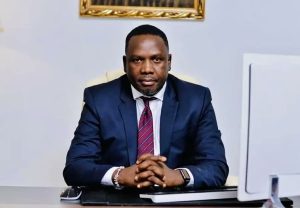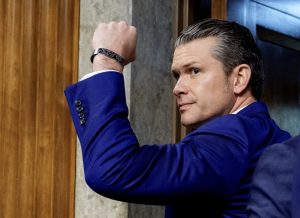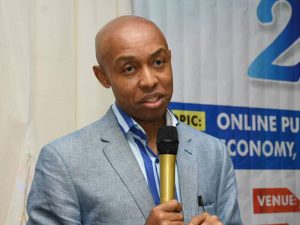Abuja, Nigeria – Professor Mahmud Yakubu has formally concluded his decade-long tenure as Chairman of Nigeria’s Independent National Electoral Commission (INEC), handing over administrative duties to National Commissioner Mrs May Agbamuche-Mbu in an acting capacity. The handover occurred during the Commission’s third regular quarterly consultative meeting with Resident Electoral Commissioners (RECs) in Abuja on Wednesday.
In accordance with the Constitution of the Federal Republic of Nigeria 1999 (as amended), Prof Yakubu announced that he had begun his pre-retirement leave. “Having been privileged to serve the Commission for 10 years, with only a few more weeks to serve, I have taken a decision and commenced the same as provided by Section 306, Subsections 1 and 2 of the Constitution,” he stated. This move, he explained, aims to facilitate a smooth transition and provide the appointing authorities sufficient time to nominate a permanent successor.
Following consultations with fellow National Commissioners, Prof Yakubu selected Mrs Agbamuche-Mbu to lead the Commission interim. He expressed confidence in her capabilities, noting that she would “quickly settle down to the task of conducting elections and electoral activities in Africa’s most democratically and logistically complex environment.”
Prof Yakubu’s tenure, which began in 2015, was marked by significant modernisation efforts within INEC. In his farewell address, he highlighted the establishment of a biometric voter register and the digitisation of various processes, including candidate nominations, observer accreditations, and results management. To chronicle these advancements, he presented two publications: Election Management in Nigeria 2015 to 2025 and Innovations in Electoral Technology 2015 to 2025, both now available on the INEC website.
Looking forward, Prof Yakubu outlined key priorities for the Commission, such as the ongoing nationwide Continuous Voter Registration (CVR), which has seen 6.8 million Nigerians complete online pre-registration and 1.2 million finish in-person registration. Additional tasks include refining the voters’ register, reviewing polling unit locations, and preparing for off-cycle elections in Anambra, Ekiti, Osun, and the Federal Capital Territory.
In her acceptance speech, Barr Mrs May Agbamuche-Mbu expressed humility and honour at the appointment. Paying tribute to her predecessor, she assured continuity: “We assure you that the commission will do our very best to maintain and uphold the standards you have set. We will continue from where you stopped.” She committed to upholding the Commission’s integrity with professionalism, dedication, and unity among commissioners, directors, staff, and stakeholders.
The ceremony evoked strong emotions, particularly from the Commission’s Secretary, Mrs Rose Oriaran-Anthony, who was visibly moved. “I stand before you today and feel with emotion… I want to say thank you to the chairman for what he has done,” she remarked, underscoring the respect and camaraderie fostered during Prof Yakubu’s leadership.
However, Prof Yakubu’s time at the helm has been highly controversial, with widespread allegations that he oversaw the rigging of the 2023 presidential election in favour of Bola Tinubu of the All Progressives Congress (APC). Critics, including opposition figures like Peter Obi of the Labour Party and Atiku Abubakar of the People’s Democratic Party, accused INEC of electoral fraud, irregularities, and failure to upload results in real-time as promised. Datti Baba-Ahmed, former vice-presidential candidate for the Labour Party, has insisted that the poll was rigged and that Yakubu violated the constitution. Public sentiment on platforms like X reflects this, with many Nigerians labelling his tenure as corrupt and marred by manipulation. Despite these claims, Nigeria’s Supreme Court upheld Tinubu’s victory, though international observers noted logistical issues and violence during the process.
As Mrs Agbamuche-Mbu assumes her acting role, attention turns to whether INEC can restore public trust ahead of future elections amid ongoing debates over electoral integrity in Africa’s largest democracy.






